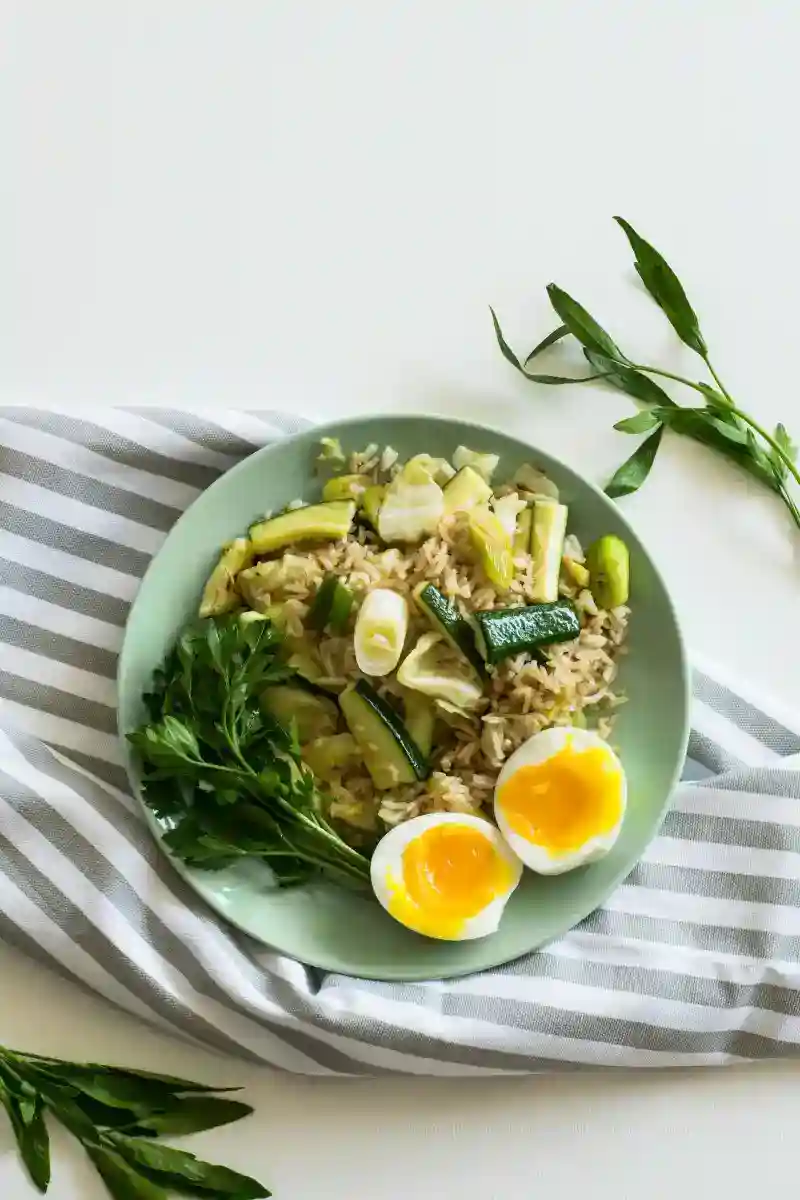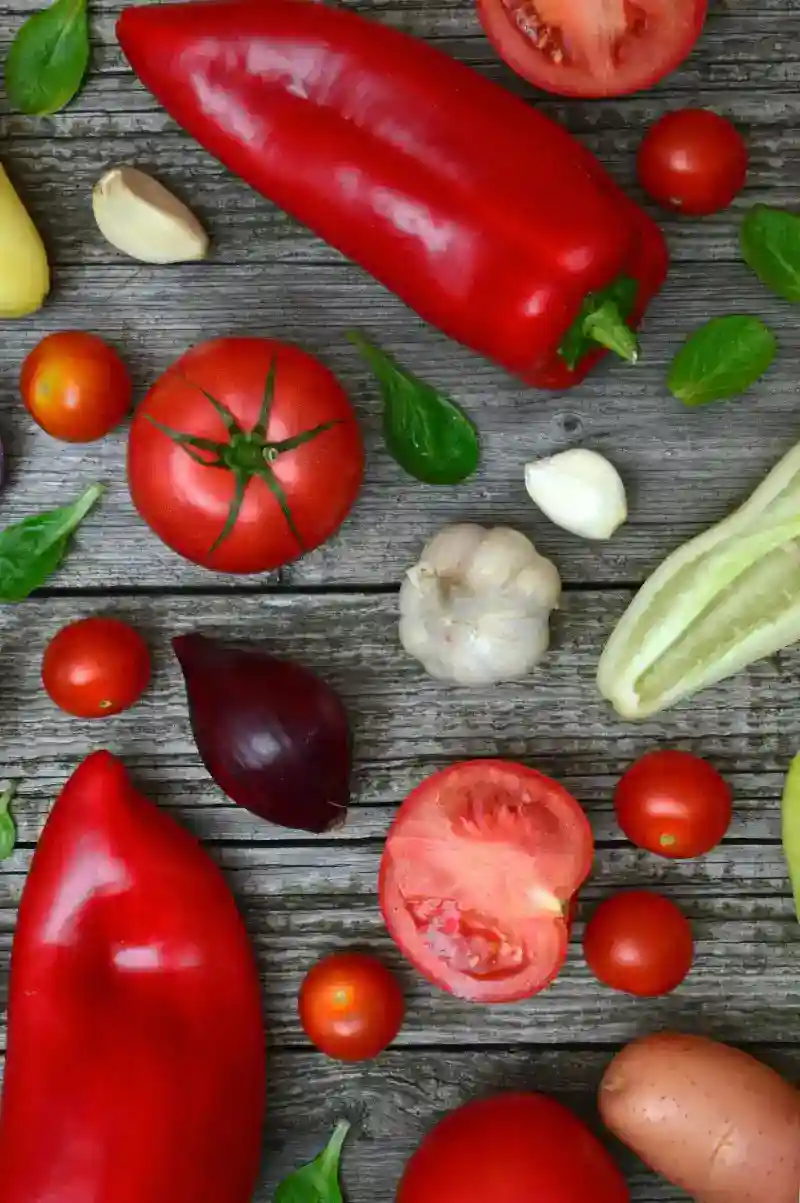Vegetarian Diet for Beginners: Easy Meal Plans & Tips

Can a WellPlanned Vegetarian Diet Really Meet Your Nutritional Needs?
A well-planned vegetarian diet is a healthy way to meet your nutritional needs here are two paragraphs explaining the text. With the increasing popularity of vegetarian diets its essential to understand how to get the best nutrition from a plant-based diet. One of the significant benefits of a vegetarian diet is that it can reduce the risk of heart disease, diabetes, and some cancers. This is because a well-planned vegetarian diet tends to be low in saturated fat and high in fiber vitamins and minerals. However some vegetarian diets may rely too heavily on processed foods which can be high in calories fat and salt. These diets may lack the essential nutrients found in fruits vegetables whole grains and nutrient-rich foods. To ensure youre getting the best nutrition from a vegetarian diet its crucial to be aware of your nutritional needs and plan a diet that meets them. In a careful planning a vegetarian diet can meet the needs of people of all ages including those who are pregnant or breastfeeding.

What Are the Different Types of Vegetarian Diets and Their Benefits?
Vegetarian diets come in various forms each with its own set of food inclusions and exclusions. For instance lacto-vegetarian diets exclude meat fish poultry and eggs but permit dairy products like milk cheese and butter. On the other hand ovo-vegetarian diets exclude meat poultry seafood and dairy products but allow eggs. Lacto-ovo vegetarian diets take a middle ground excluding meat fish and poultry but permitting dairy products and eggs. Pescatarian diets exclude meat poultry dairy and eggs but allow fish. Animal products at the other end of the spectrum vegan diets exclude all animal products including meat poultry fish eggs dairy and even foods that contain these products. Some individuals however follow a mostly plant-based diet but occasionally consume meat dairy eggs poultry and fish in small quantities. This semi-vegetarian approach is often referred to as a flexitarian diet. Regardless of the type of vegetarian diets can offer numerous benefits including weight loss improved protein intake and a reduced risk of chronic diseases.

What Makes a Healthy Vegetarian Diet and How to Get Started?
Planning a healthy vegetarian diet is all about making informed choices. To get the most out of your diet focus on whole fruits vegetables whole grains nuts and legumes like lentils beans and peanuts. Foods packed with nutrients will provide you with energy you need. At the same time its essential to cut back on less healthy options such as sugar-sweetened beverages fruit juices and refined grains. A registered dietitian can help you create a personalized vegetarian plan that meets your unique needs. When it comes to daily intake, a 2,000-calorie vegetarian diet should include 2 1/2 cups of vegetables, 2 cups of fruits, 6 1/2 ounces of whole grains, 3 cups of dairy products, 3 1/2 ounces of protein, and 27 grams of oils. These amounts are based on the 2020-2025 dietary guidelines for americans. Its also important to keep in mind that the more foods you cut out of your diet the harder it can be to get all the nutrients you need. For example a vegan diet may require extra effort to get enough vitamin b-12 and calcium which are found in milk products. You can create a well-rounded vegetarian diet that supports your overall health and wellbeing by being mindful of these potential gaps.

Can a Vegetarian Diet Really Provide All the Necessary Nutrients?
A well-planned vegetarian diet can provide all the necessary nutrients for a healthy body. However its essential to pay special attention to certain nutrients that are crucial for our bodys functioning. Calcium and vitamin d are two such nutrients that play a vital role in building and maintaining strong teeth and bones. While milk and dairy foods are rich in calcium, dark green vegetables like turnip, collard greens, kale, and broccoli are good plant-based sources. Additionally calcium-enriched and fortified products such as juices cereals soy milk soy yogurt and tofu can also provide the required amount of calcium. Vitamin d is another essential nutrient that helps in bone health. There are some brands of soy and rice milk and cereals and margarines added to cows milk. People who dont eat enough fortified foods and have limited sun exposure may need to consider vitamin d supplements especially plant-derived ones. Vitamin b-12 is another crucial nutrient that helps produce red blood cells and prevent anemia. While its found in animal products vegans can get it through vitamin supplements vitamin-enriched cereals and fortified soy products. Protein is an essential nutrient that helps to keep our skin bones muscles and organs healthy. Eggs and dairy products are good sources of protein but vegetarians can get enough protein by eating a variety of plant-based foods throughout the day. Soy products legumes lentils nuts seeds and whole grains are all good sources of protein. Omega-three fatty acids found in fish fish canola oil soy oil walnuts ground flaxseed and soybeans are important for heart health and fetal development during pregnancy. Vegetarians who dont eat fish can consider adding fortified products to their diet. It is important for our body to have iron and zinc in it. Iron helps to produce red blood cells while zinc helps make proteins and grow cells. While animal products are rich in these minerals vegetarians can get them through plant-based sources like dried beans and peas lentils enriched cereals whole grain products dark leafy green vegetables and dried fruit. Iodine essential for thyroid hormones can be easily added to food through iodized salt. Seafood and dairy are also good sources of iodine but vegetarians can opt for seaweed as a plant-based resource. By paying attention to these nutrients vegetarians can ensure they have everything their body needs to function optimally.

How to Make the Leap to a Vegetarian Diet with Ease?
Getting started on a vegetarian diet can be as simple as making a few gradual changes to your eating habits. One effective approach is to slowly reduce the amount of meat in your diet while increasing your intake of fruits and vegetables. This will not only make the transition easier but also ensure youre getting all the nutrients your body needs. Try ramping up your meatless meals. As an example if you already enjoy spaghetti with tomato sauce or vegetables stir-fry increase the frequency of these meals each week. Incorporate leafy greens like spinach kale and collard greens into your daily meals. These superfoods are packed with nutrients and will help you feel full and satisfied. Another great tip is to substitute meat with plant-based alternatives in your favorite recipes. You might be surprised at how easy it is to make vegetarian chili by leaving out the ground beef and adding an extra can of black beans instead. Or try making fajitas with extra-firm tofu instead of chicken. With these simple changes you can create delicious and healthy vegetarian meals that everyone will love. Finally dont be afraid to branch out and try new vegetarian cuisine and recipes. Check out online menus borrow vegetarian cookbooks from the library or visit ethnic restaurants to sample new dishes. By adding variety to your vegetarian diet youll be more likely to meet your nutritional needs and stay on track with your new eating habits.

Can a Vegetarian Diet Really Help You Lose Weight and Boost Protein?
At eatingwell our registered dietitians create meal plans that are easy to follow and delicious. Each meal plan is tailored to specific health conditions and lifestyle goals and is analyzed for accuracy using a nutrition database called esha food processor. Because everyones nutritional needs are different we encourage you to use these plans as inspiration and adjust them to fit your individual needs. To make the most of your meal plan we recommend meal prepping for the week. You can start by preparing lemon-roasted vegetable hummus bowls and storing them in to-go containers. Bake some baked banana-nut oatmeal cups and store them in air-tight containers to keep them fresh. Whip up a batch of peanut-butter energy balls to enjoy as snacks and evening treats and store them in an airtight container for up to 5 days in the refrigerator or up to 3 months in the freezer. Finally, make 3 hard-boiled eggs to have as snacks throughout the week. Our meal plan provides approximately 1200-1250 calories per day, with a balance of protein, carbohydrates, fiber, and fat. Each days menu includes a breakfast, morning snack, lunch, afternoon snack, dinner, and evening snack. Day 1 breakfast is oatmeal with raspberries and a pinch of cinnamon followed by a morning snack of medium apples. Lunch is a whole-wheat veggie wrap with an afternoon snack of nonfat plain greek yogurt and sliced strawberries. By following this meal plan, you can expect to get approximately 45-55 grams of protein per day, with a balance of carbohydrates, fiber, and fat. This meal plan is suitable for vegetarians and can help with weight loss as it is high in fiber and protein and low in fat. A portion of the meal plan is rich in antioxidants and phytochemicals from the variety of fruits and vegetables included. Overall this meal plan is designed to be easy to follow and provide a balanced and nutritious diet for vegetarians. With a little meal prep and planning, you can enjoy delicious and healthy meals all week long.